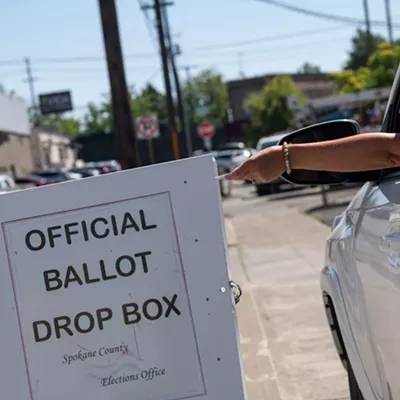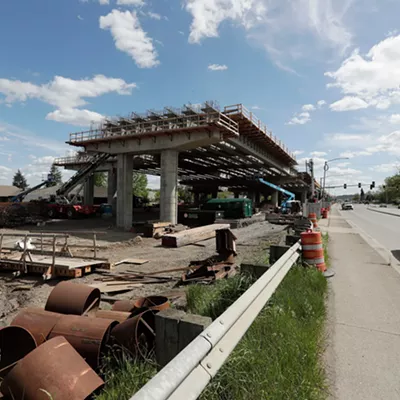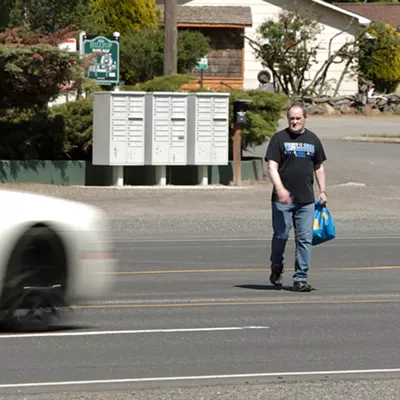After several weeks of debate and revisions, Spokane City Council members voted 4-3 on Monday to pass a controversial new law giving police authority to arrest people in city parks between 11 pm and 5 am. The ordinance was introduced at the request of the police department and the Spokane Park Board, which said they were seeing an uptick in disorder and violence in parks at night. The new law raises the penalty to a misdemeanor punishable by jail time. Police have said they'll use discretion and that people who aren't causing trouble don't have to worry, but the Spokane Human Rights Commission and a number of community groups are concerned that will lead to biased enforcement and criminalization of vulnerable people. City Council President Breean Beggs and members Betsy Wilkerson and Zack Zappone, voted against the ordinance. (NATE SANFORD)
HARMFUL HOOPS
The wins and dunks will be memorialized, but the injuries may hold a longer grip on the memories of Hoopfest players. With four tents stationed around downtown this weekend, MultiCare provided free services and medical care to participants. Recorded heat-related illnesses and dehydration were one-third of last year's incidents, but this year accounted for only eight of the 1,185 total injuries treated at this year's Hoopfest. Half of MultiCare's services last weekend went to preventative care (604), such as taping players to avoid further injuries. Among the top injuries from this weekend were general wounds (251), strains or sprains (155), fractures (56), and blisters (37). The number of treated injuries increased by 200 this weekend compared to last year. While that may seem like a substantial increase, keep in mind that 750 more teams played this year, reaching a total of about 4,250 teams. (SUMMER SANDSTROM)
CARS KEEP KILLING
When you lay the past four decades of pedestrian traffic fatalities out on a graph, it forms an almost perfect "U" shape. After peaking in the early 1980s, the number of pedestrians killed by motorists per year steadily declined for decades. But as we previously reported ("Reclaiming the Streets," April 27, 2023), in 2009 something flipped, and the numbers started rising, and rising, and rising. In 2022, the number hit a grim new milestone. According to a report from the Governors Highway Safety Association, 7,508 Americans were killed by cars in 2022 — the highest number on record since 1981. Researchers have offered various hypotheses for the sharp increase, including smartphones, increasingly large vehicles, and car-centric street and crosswalk design. Despite the nationwide increase, data shows that the number of deaths in Washington actually decreased — from 141 deaths in 2021 to 130 in 2022. The report highlighted a Washington law passed in March 2022 authorizing the state Department of Transportation to establish a maximum speed limit of 20 mph on non-arterial state highways. (NATE SANFORD)
IN THE HEARTLAND
This week, the American Heart Association announced it's giving $20 million to hospitals in the Inland Northwest and elsewhere to research health care access improvements for rural areas. The University of Washington will coordinate the network, which will include Washington, Oregon, California, North Carolina and Ohio. Rural Americans are 40 percent more likely to develop heart disease and have a 30 percent higher risk of stroke, according to the association. The UW project will focus on health issues among specific ethnic groups around the country, such as American Indians and Latinos. In addition to identifying barriers, such as the distance to the nearest doctor's office, the project will see if health care delivery methods used in other countries could help. Other projects include drone-delivery of automatic external defibrillators, using ultrasounds to find heart problems, and more. (SAMANTHA WOHLFEIL)

















